SAJIDA Foundation hosted a half-day research dissemination event on 21 August 2025 at Lakeshore Heights, Dhaka, bringing together over 50 participants including researchers, policymakers, government officials, embassy representatives, development practitioners, and community members.
Representatives from IUCN, icddr,b, GAIN, WHO, Naripokkho, University of Liberal Arts Bangladesh (ULAB), Helvetas, the Ministry of Agriculture, Centre for Climate Change and Environmental Research (C3ER), Plan International, Swisscontact, SAARC Agriculture Centre (SAC) attended the event. The gathering provided a platform to share insights and discuss local, community-led solutions for climate adaptation in Bangladesh’s most vulnerable regions.
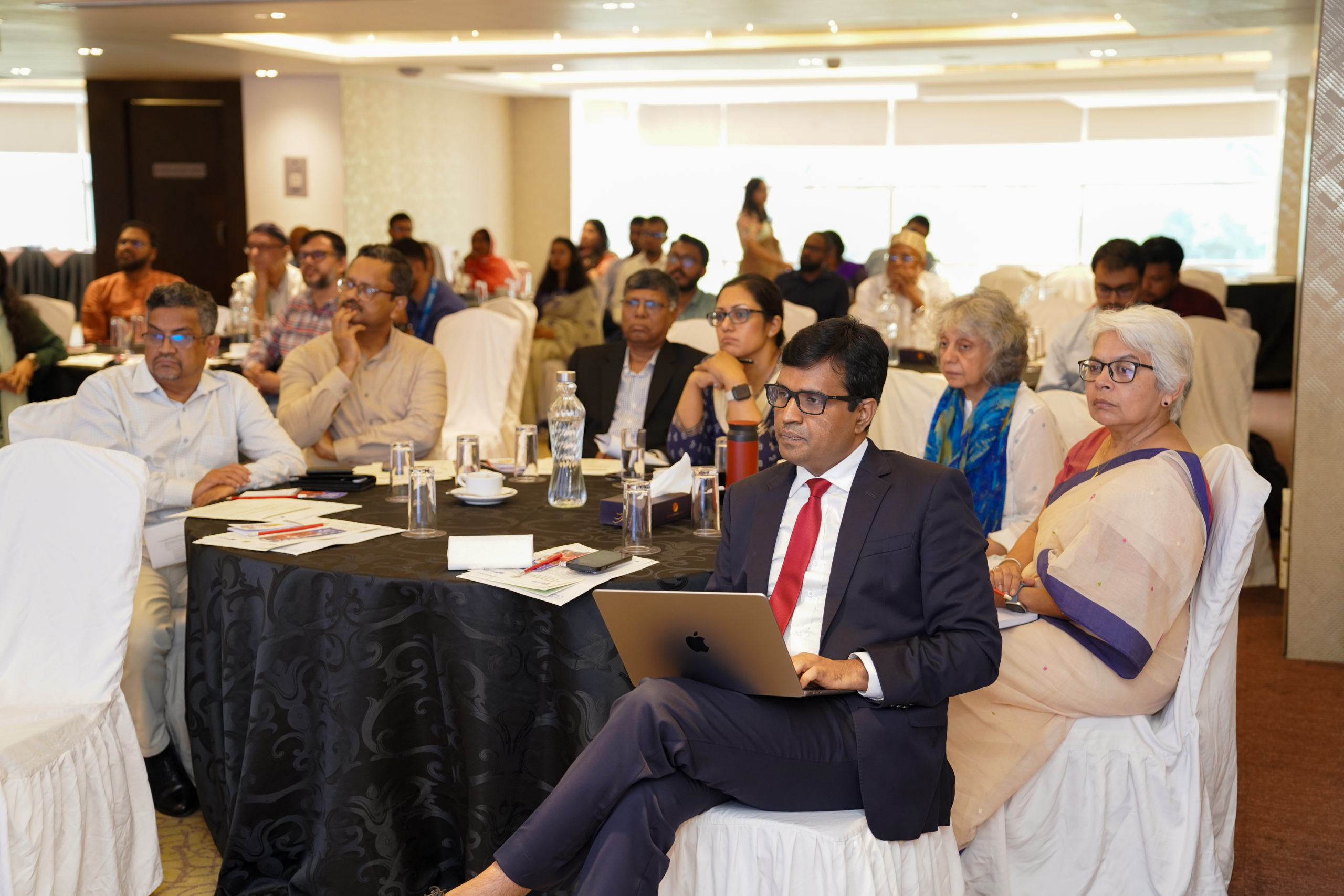
ENGAGE4Sundarbans| A Research to Experiment Intervention Co-designed with Climate-vulnerable Communities
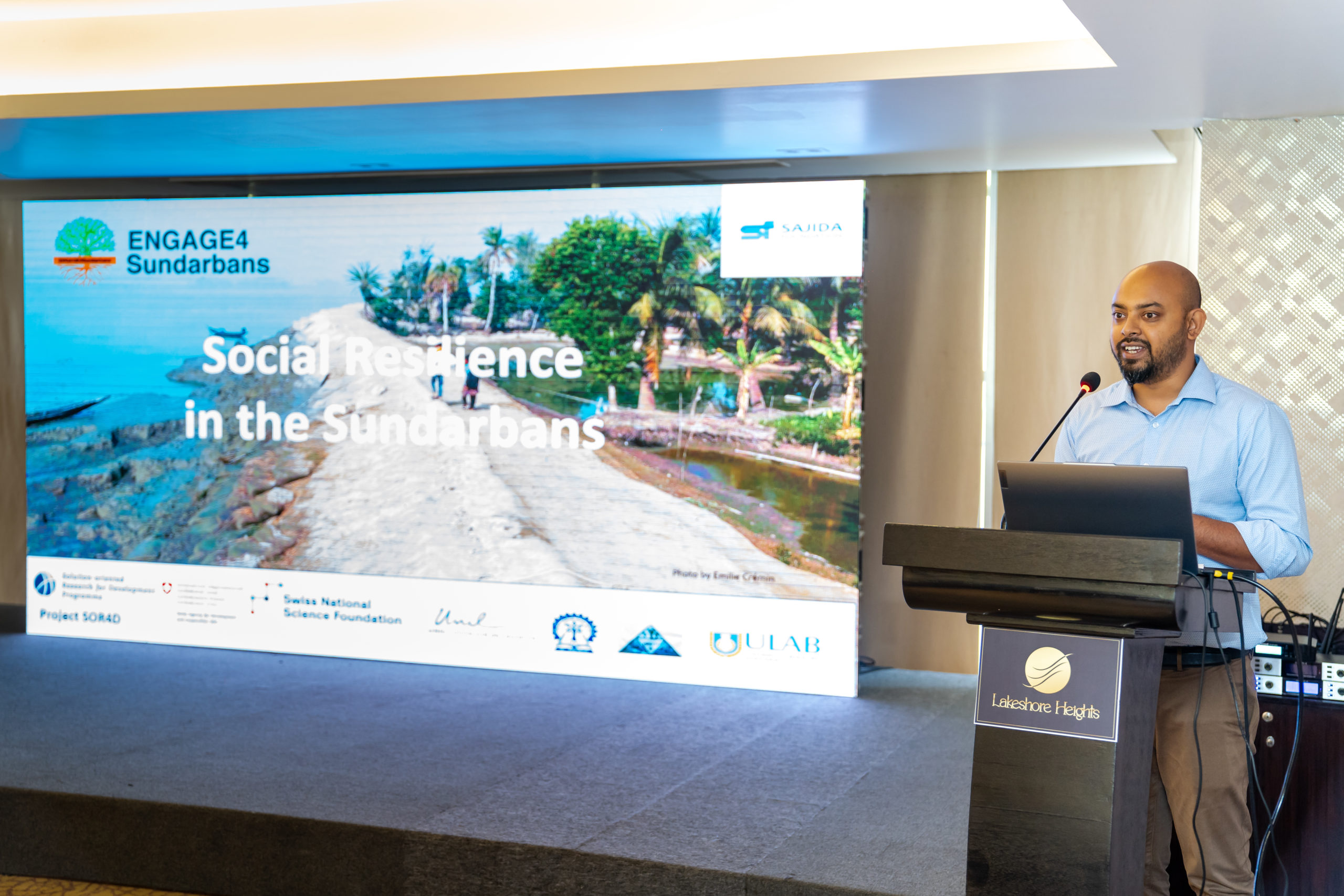
The Sundarbans faces severe threats from climate change and human activities, and top-down interventions often harm rather than help communities. In response, the Eliciting Needs-based Grassroots Action through Cross-Group Engagement (ENGAGE4Sundarbans) project was launched with support from the Swiss Agency for Development and Cooperation (SDC) and the Swiss National Science Foundation (SNSF).
At the event, Nurul Islam Biplob, Lead Researcher at SAJIDA Foundation, presented key findings from the project, which builds on Nature-based Solutions (NbS) and community-led adaptation. He described how farmers, community leaders, union councils, local entrepreneurs, government agencies, and experts collaborated to design and implement the intervention.
More on ENGAGE4Sundarbans: Click here
Key learnings from the experiment
The findings emphasized that locally driven solutions yield the strongest outcomes when we
- Elevate and integrate women’s leadership into adaptation planning and implementation.
- Expand the Farmers’ Commons model for collective access to land, finance, and markets.
- Invest in local value chains and processing to strengthen rural economies and reduce losses.
- Provide flexible financing tailored to smallholders and local entrepreneurs.
- Institutionalize community-led adaptation through stronger local governance partnerships
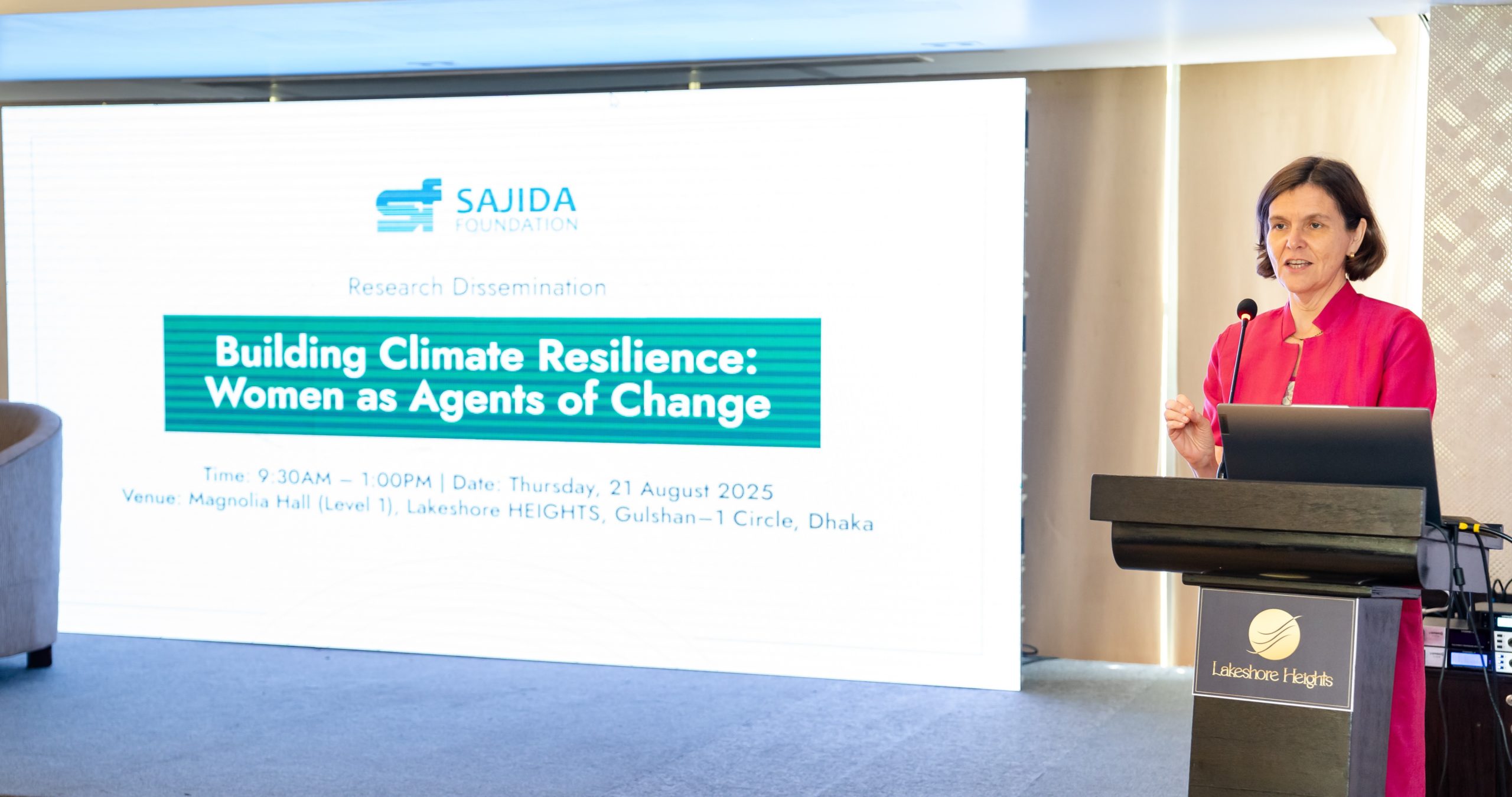
“We will continue to explore avenues for collaboration between CALL and ENGAGE, aiming to advance the discussion and practice of locally led localisation.” – Corinne Henchoz Pignani, Head of Cooperation, Embassy of Switzerland in Bangladesh
In the Special Guest’s remarks, Corinne Henchoz Pignani highlighted the activities the Swiss funding agencies and NGOs are doing in the Climate Action at Local Level (CALL) programme. She expressed the hope that there would be greater cooperation between CALL and ENGAGE4Sundarbans for locally led adaptation and mitigation. Emphasising the importance of co-design with communities, she noted that when people of concern are in the driver’s seat—actively participating in design and decision-making—the solutions are far more effective. While this approach is not always easy, it is essential for meaningful impact.
Plenary Session | Bridging Evidence and Action: Climate Resilience in the Sundarbans Delta
An engaging panel discussion on was moderated by Md Fazlul Hoque, Deputy Chief Executive Officer of SAJIDA Foundation, who raised questions on scaling research findings, contextualising NbS in local Settings, ensuring social inclusion, securing government support for NGO projects, and strengthening local adaptation.
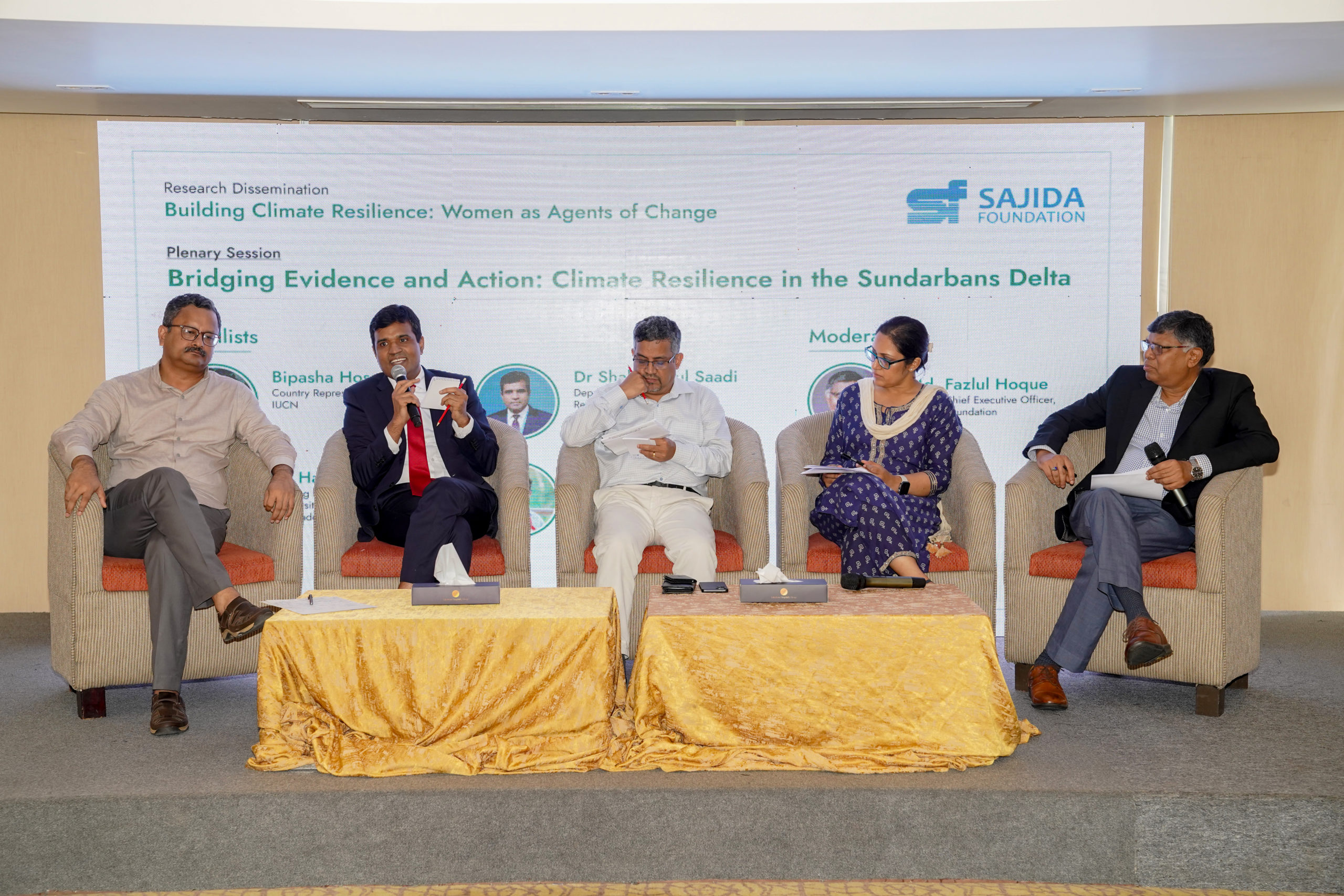
Session Takeaways
Regarding the scalability of research findings, Dr Shah Abdul Saadi, Deputy Secretary, Economic Relations Division (ERD) under the Ministry of Finance, expressed that scaling requires careful consideration of the supply and demand equation. He appreciated SAJIDA Foundation’s focus on sensitive areas of climate change including fisheries and agriculture.
Bipasha Hossain, Country Representative at IUCN, highlighted the impressive work of communities, especially women, including testing salt-tolerant rice and vegetable varieties, practicing raised-bed cultivation, excavating canals, and using compost. In the Sundarbans, she suggested interventions such as mangrove creation, embankment plantations functioning as “green fences” against salinity, and multi-nutrient crop farming on the same land.
“When discussing agriculture, we often focus solely on people and neglect biodiversity. However, during the last presentation on agroecology, biodiversity naturally entered the conversation, highlighting its intrinsic connection to farming practices. It is important to remember that we are part of a social-ecological system; we are not only “social” or only “ecological”—we are both,” Noted Dr Haseeb Irfanullah, Visiting Research Fellow at the University of Liberal Arts Bangladesh (ULAB)
Dr AKM Nuruzzaman, General Manager at Palli Karma-Sahayak Foundation (PKSF), noted challenges in aligning with public organisations, as civil society efforts often run parallel to government initiatives and pointed to critical data gaps at the local level, such as the number of functional water sources. Coordination, he explained, often requires peace-building approaches, and while many good initiatives remain shelved, gradual progress continues within an imperfect system.
A Q&A session followed the plenary, allowing participants to engage with the speakers and clarify key points.
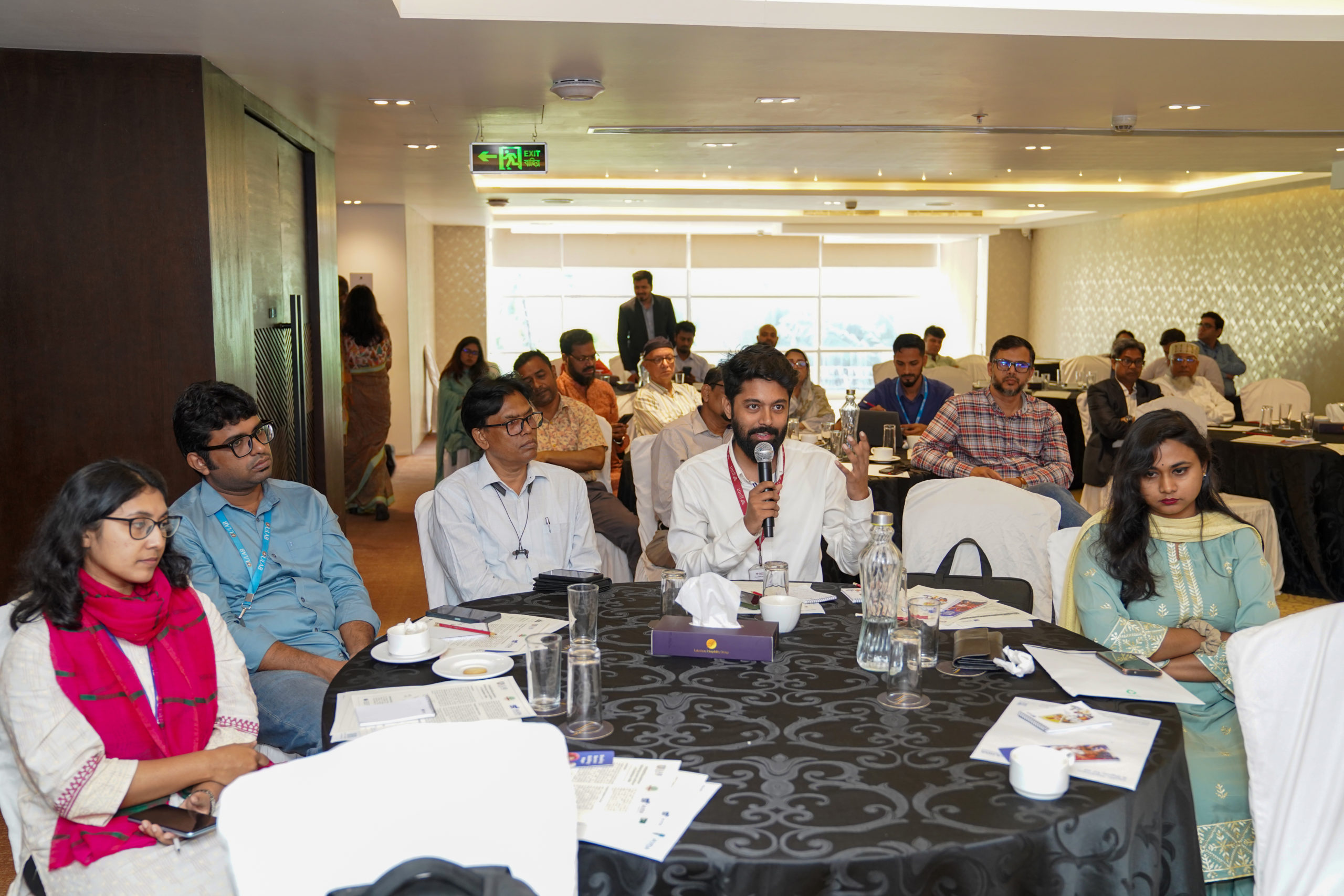
“There is a gap between researchers and implementers. We need to bridge the gap between people, research, programmes, bureaucracy for better results.” – Dr Sajeda Amin, Senior Research Advisor, SAJIDA Foundation
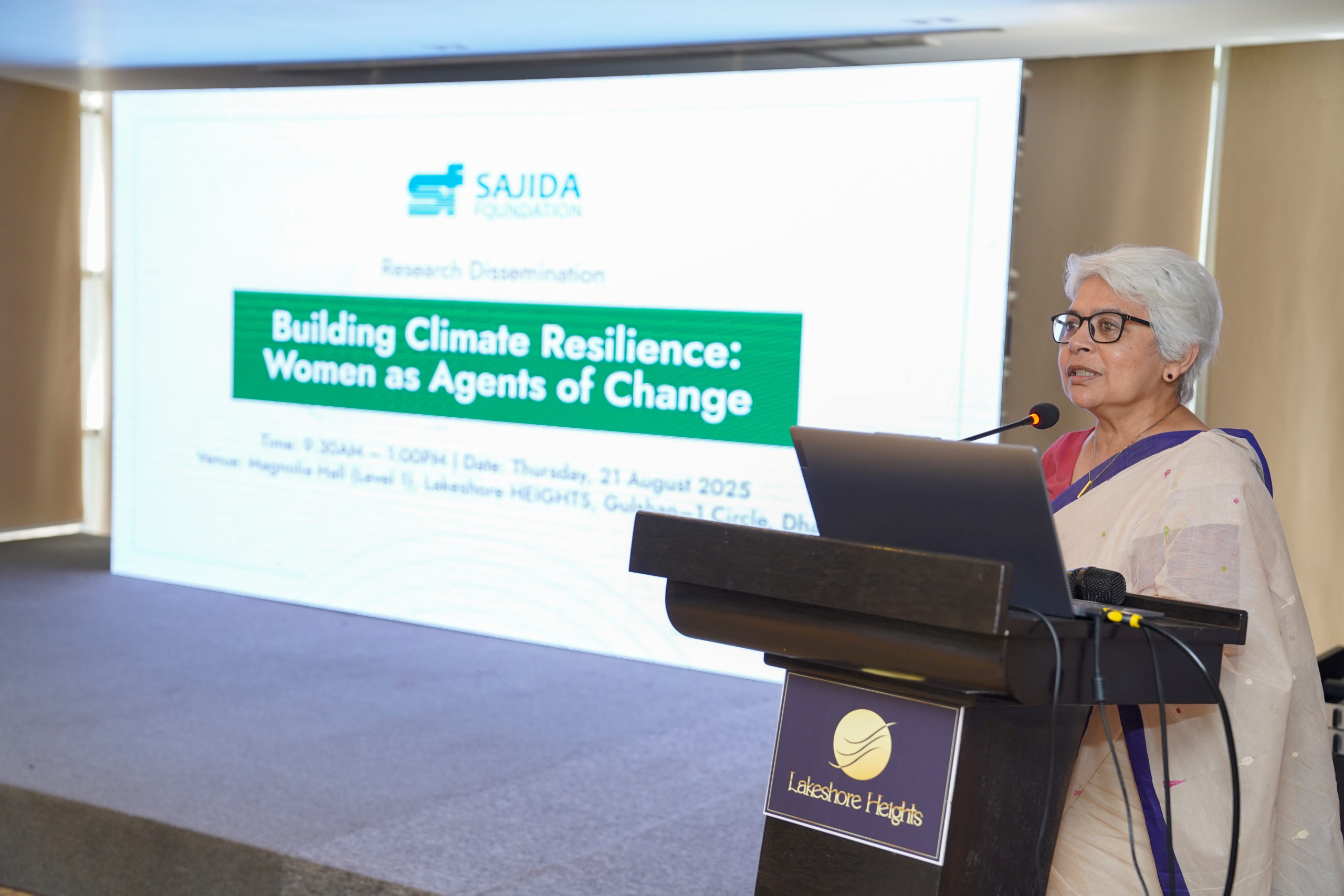
In her closing remarks, Dr Sajeda Amin laid emphasis on the need for understanding local cultures for better communication with local communities and ensure greater impact of any programme.
Recommendations
- Recognise women’s role in resilience building
- Strengthen local governance partnerships
- Enable flexible financing for smallholding farmers and local entrepreneurs
- Invest in local processing and value addition
- Scale up Farmers’ Commons model
- Enhance market linkages
- Develop sustainable irrigation system
- Document and Scale Social Learning
- Integrate NbS in climate adaptation planning
